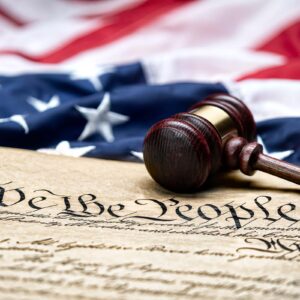The World Health Organization has declared the 2020 coronavirus known as COVID-19 a “world-wide pandemic”. Many countries – including the United States – are taking extraordinary measures to slow the spread of the virus. Travel into the United States for foreign nationals has been suspended. National and collegiate sports leagues have closed down their seasons pre-emptively. Schools are closed. Some states are using extraordinary measures – such as New York’s use of the National Guard – to fight the spread. Georgia’s Shelter in Place Order, has been issued by Governor Kemp, much like the rest of the country. In times such as these, everyone inevitably will ask: how far can governments go to protect us? Can a declared state of emergency affect our rights to possess firearms, to protect our families?
Georgia law does not specifically address weapons and evacuation for disasters or declared states of emergency. There is no statute describing carrying firearms during a state of emergency, such as Georgia’s Shelter in Place Order.
Georgia’s Shelter in Place Order: Confiscation of Firearms?
Now, don’t let that mislead you. Georgia law does provide for rules concerning the confiscation or registration of firearms during a declared state of emergency. The confiscation of lawful firearms and ammunition AND the registration of firearms during a declared state of emergency are prohibited by state law. Official Code of Georgia §38-3-37 prohibits seizures of firearms or ammunition by any state authorities in a time of emergency. This includes any requirements in the state for registration of firearms. The law clearly states:
“No official or employee of the state or any political subdivision thereof, member of the National Guard in the service of the state, or any person operating pursuant to or under color of state law, while acting during or pursuant to a declared state of emergency, shall:
- Temporarily or permanently seize, or authorize the seizure of, any firearm or ammunition or any component thereof the possession of which was not prohibited by law at the time immediately prior to the declaration of a state of emergency, other than as provided by the criminal or forfeiture laws of this state;
- Prohibit possession of any firearm or ammunition or any component thereof or promulgate any rule, regulation, or order prohibiting possession of any firearm or ammunition or any component thereof if such possession was not otherwise prohibited by law at the time immediately prior to the declaration of a state of emergency;
- Prohibit any license holder from carrying any weapon or promulgate any rule, regulation, or order prohibiting such carrying if such carrying was not otherwise prohibited by law at the time immediately prior to the declaration of a state of emergency; or
- Require the registration of any firearm.”
The Law’s Protection
This 2014 state law closely follows the language of the Federal Disaster Recovery Personal Protection Act of 2006. That act amended federal law. It protects American citizens from firearms and ammunition confiscation, prohibition, and registration by the federal government. This law can be found at 42 USC §5207 and is known as the Disaster Relief and Emergency Assistance Act. It also prevents the restricting, prohibiting, or seizing firearms and ammunition lawful before the state of emergency was declared.
The good news? Both Georgia AND the federal government have laws restricting confiscation of firearms during states of emergency. This includes Georgia’s Shelter in Place Order. If you find yourself in the midst of a natural disaster, a pandemic, or a declared state of emergency, keep your head, protect yourself and your family, and if you must evacuate or isolate, rest assured you can do so lawfully with your firearms.





